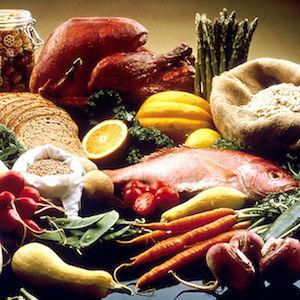For some reason, humans enjoy making predictions of death and destruction. From politicians to fanatical religious leaders, there is a lot of money to be made telling people that Earth is toast.
Of course, the predictions never come true, but that doesn't prevent doomsayers from making more of them. "One of these days, it will be true," they warn, as they wag their wrinkly finger in our faces.
The most famous finger-wagger was Thomas Malthus, who said that the world population would grow so large that we couldn't feed ourselves anymore. He was wrong, but that didn't stop Paul Ehrlich from resuscitating his argument 170 years later in The Population Bomb. He was wrong, too, but that didn't stop Quartz from reanimating this ideological corpse once again.
The Quartz article leaned heavily upon the testimony of CEO Sara Menker of Gro Intelligence, an agriculture data company. That is a perfectly fine source of information, but it should raise some journalistic skepticism. A CEO has an incentive to exaggerate the size of problems so that potential customers will purchase her product to solve it. Such skepticism was completely absent in article that begins, "[I]n just a decade, we won't have enough food to feed the planet." The author implausibly goes on:
"We've long known that we might reach a point where we have more people than the food to sustain them."
No, we've long speculated that this would happen. But the speculations were always wrong because technology and human adaptation outpaced population growth. Why should we expect a consistent trend of better technology and agricultural yields to all of a sudden reverse?
"By 2050, the world’s population is expected to reach 9.1 billion, and the United Nations’ Food and Agriculture Organization (FAO) predicts that at that point, the world would need to produce 70% more food than today to feed all those people."
That makes no sense. The UN's FAO made that claim in 2009, and it is based upon the projected population increase from 2005 (6.5 billion) to 2050 (9.1 billion). That's a population increase of 40%, but the UN says we need to grow 70% more food. Why? The figure makes even less sense once we consider the sheer magnitude of food waste. By one estimate, the U.S. throws away about half of its edible food.
"That 2050 deadline is the one usually cited by scientists and organizations like FAO and Oxfam as the year the world will run out of food."
The FAO report the author cited does not say that. In fact, it says the exact opposite. The report claims that average energy availability could increase from 2,770 Calories per person per day in 2003 to 3,050 by 2050. Simultaneously, it says that the prevalence of undernourishment in poor countries could fall from 16.3% to 4.8%. For this to happen, governments and NGOs will need to make efforts to reduce poverty and to get food into the hands of people who need it. Distribution of food appears to be a far bigger problem than production.
The report goes so far as to suggest that, as poor countries develop, they will transition away from having many small, subsistence farmers to fewer, large commercial farms. That is precisely what occurred in North America and Europe as the economies advanced.
"By 2023, even if all the surplus produce from countries in Europe, North and South America was solely exported to China, India, and Africa, it still would not be enough, says Menker. Four years later, Menker predicts, there will be a 214 trillion calorie shortage."
This is the wildest claim made by the author of the Quartz article. It doesn't appear to be backed up by anything other than Ms. Menker's assurances.
"Menker... started Gro Intelligence to provide individuals, governments, and businesses insights into agriculture, tracking data from weather patterns to pricing dynamics. She has some solutions to avert the oncoming crisis: reform the agricultural industries in Africa and India by changing how farmers farm, how people buy and consume food, decrease food waste, improve infrastructure, and increase farm yields exponentially."
Of course, these are all true, and people who study agriculture are already well aware of these issues. Exaggerating the extent of the challenge we face might help her sell software, but it provides little confidence in the reliability of her product.




